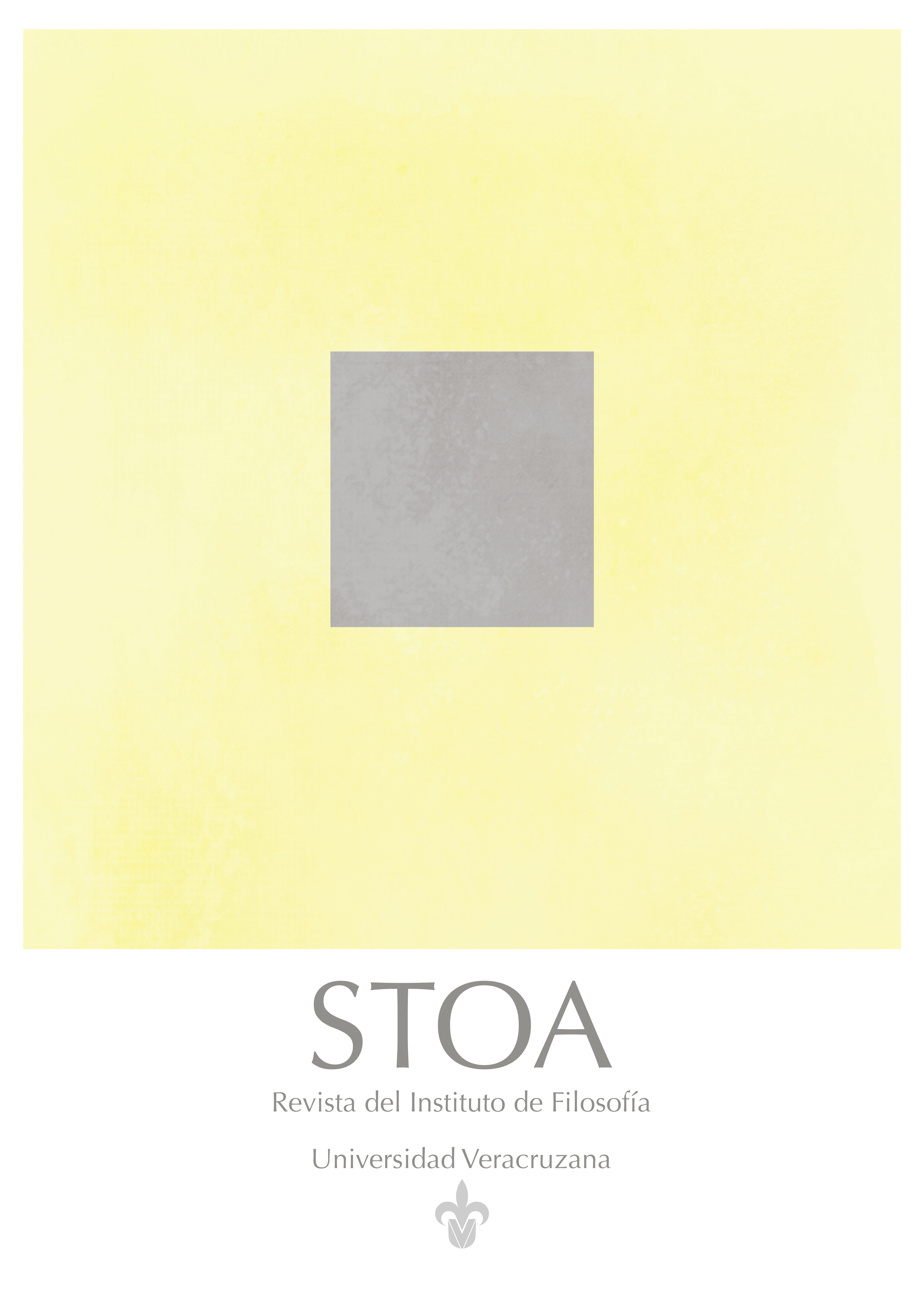Abstract
One of the leading thinkers of British pluralism in the 19th century was John Neville Figgis, author of a pluralist philosophy of social order that rivaled the liberal ideas of his day. This work presents the political ideas of Figgis, particularly as they were exposed in his work Churches in the Modern State (1913), with an emphasis on the pluralistic position, and the personality of the communities in relation to the State and to the individual. To show how he developed his thought, this essay contrasts his ideas present in the aforementioned book with the liberal ideas of John Stuart Mill, in particular his On Liberty (1859). The work concludes that, against Mill and his state-guaranteed individualism, Figgis defends the autonomy of intermediate groups to safeguard the individuality of the person.
STOA is a biannual publication edited by the Institute of Philosophy of the Universidad Veracruzana, Tuxpan, No. 29, Frac. Veracruz, C.P. 91020, Xalapa, Ver., Tel. 8154285, http://www.uv.mx/filosofia. Responsible editor: Jesús Turiso Sebastián. Exclusive Use Rights Reservation No. 04-2008-121012511200-203, granted by the Copyright Reservation Directorate of the National Institute of Copyright of the Secretariat of Public Education, ISSN: 2007-1868. Responsible for the last modification of this issue: Jesús Turiso Sebastián, Tuxpan, No. 29, Frac. Veracruz, C.P. 91020, date of last modification August 5, 2011. Distribution and digital support by the Academic Software Development Department of the Universidad Veracruzana.
The opinions expressed by the authors do not necessarily reflect the position of the editor of the publication. Reproduction by any means of the texts published in this journal may be done as long as the source is cited, including the name of the author, the name and number of the journal, and its electronic address. For more information write to revistastoa@uv.mx.
Revista Stoa is a completely free publication, with no cost for processing or receiving articles and free access.
This work is under a Creative Commons Attribution-NonCommercial-ShareAlike 4.0 International license.

